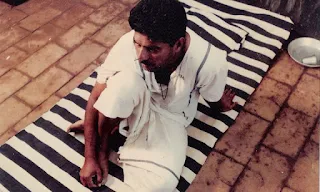Miniseries
 |
| https://www.imdb.com/title/tt33496221/ |
Fast forward to the 21st century. Children are no longer perceived as an annoyance; rather, family life revolves around them. They are shielded and have a detailed schedule planned. Family activities centre on them. Children have rights, and the state goes to great lengths to ensure their protection, education, healthcare, shelter, and proper nutrition, as outlined by the 1959 UN Charter which guarantees these rights.
These achievements have been beneficial. Children are no longer merely fillers for deceased or retired workers. They require a significant period of personal development known as childhood. At this stage, nothing is expected of them except to absorb knowledge, whether actively or passively, that they can utilise in adulthood.
The trouble is this: all the good nourishment and access to knowledge have made children mature much earlier than their forefathers. In the eyes of society (and law), nothing is expected of them. They are deemed incapable of committing any crime. In their minds, they believe they are unable to consent to anything or to engage in complex matters such as robbing a bank or wooing someone into sex.
Guess what? The world has taken a leap of change while they were napping. The ease of acquiring information from the World Wide Web at a moment's notice has replaced traditional discussions about ‘birds and bees’ or familiarising oneself with subversives. Nothing is taboo or classified anymore.
We end up with all-knowing teenagers who possess excellent nourishment and health due to science, hovering about like firecrackers with unlit fuses, ready to explode when the moment is right.
This unsettling miniseries portrays a scenario in which two affluent neighbours, whose husbands are business partners, are also close friends. They share numerous similarities, both having teenage sons and each employing au pairs of Filipina heritage.
One of the au pairs approached her neighbour's Madame to express her dissatisfaction with her employer. The Madame merely attempted to cut the conversation short, likely not wanting to jeopardise her friendship with the neighbour. The next day, the au pair goes missing. Everyone assumes she has merely run away from home. The police are called in. Things take a turn when the Madame begins to suspect that the husband may have had some involvement in her disappearance. A week later, her body is discovered floating in the lake.
Spoiler alert: As it turns out, one of the teenage sons had raped the Filipina. Feeling guilty and with no one to turn to, she took her own life. The trouble is that the youngster cannot be charged with rape. Legally, he is incapable of such an act. Forget that he is of Nordic stock, athletic, and a school wrestler. If anything, the deceased would be accused of sexual assault of the teenager! Probably because Filipinas are economically disadvantaged, occupy the lower strata of society, and are foreigners, the matter dies a natural death. Everyone moves on with their lives, nonetheless, dragging along huge burdens.



























